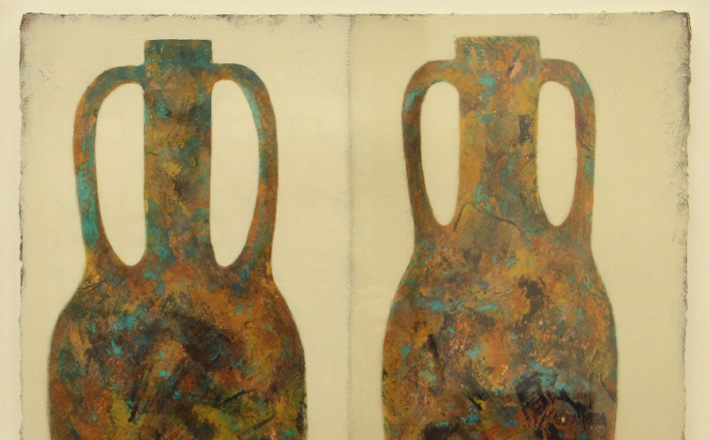Commentary on Isaiah 43:16-21
The Old Testament reading for this week is taken from that portion of Isaiah that is often called “Second Isaiah.” Although very few traces of the prophet’s identity can be found in Isaiah 40-55, the period of Second Isaiah’s ministry is located with some confidence in the late sixth century, the time when Judah was suffering under Babylonian rule.
Some of the people had been taken into exile in Babylon while others remained in the land, but both groups suffered to varying degrees the debilitating effects of being a conquered people.
Physically, economically, culturally, and religiously, the people felt the might of Babylon, and it seems that one of the tasks of the prophet was to rebuild the people’s understanding of themselves as God’s own people and to reassure them that their god was fully capable of taking on the Babylonian superpower in order to save them.
Isaiah 43:16-21 begins with a formula familiar to any reader of the prophets: “Thus says the Lord.” These words are the traditional introduction to a prophetic oracle and occur in this chapter three times (verses 1, 14, 16). What follows the three instances of this expression in chapter 43, however, is not the expected divine oracle but a character reference of sorts for the god on whose behalf the prophet is speaking.
The god addressing the people is none other than the god who “makes a way in the sea, a path in the mighty waters, who brings out chariot and horse… they are extinguished, quenched like a wick!” (verse 16b). The image is stirring and visual and highlights the power of God over both the forces of nature and military might, a power to which the Exodus, the foundational story of the people of Israel, attests. The similarities between Isaiah 43:16-17 and the description of the miraculous rescue of the people at the sea in Exodus 14 and 15 strongly suggest that the prophet is invoking their cultural memory of that dramatic story of redemption from Egypt.
The foundational narrative of the people is an impressive story to bring into play, but it is hardly surprising to find a reference to this story of redemption in the context of Isaiah 43. In fact, there are references throughout this chapter to the history the people and God share. Verse 1 refers to God as the one who “created,” “formed,” “redeemed,” and “named” them. Verse 7 notes that the people were, in fact, named after their god and created for this god’s own glory (see also verse 21). Clearly, the prophet wants the people to see that their own identity as a people is intertwined with the identity of their god. They are indissolubly linked.
It is fascinating that the prophet, having gone to so much effort to invoke the past, continues in verse 18 with the injunction: “Do not remember the former things, or consider the things of old!” The command is surprising and serves as an effective rhetorical device to get the people’s attention, for the prophet is not content to have the people wax nostalgic about the “good old days.”
It is not on the past as the past that the prophet wants the people to concentrate. The prophet aims to create an imaginative space in the minds of the people so that their conception of the past can transform their understanding of the present and, thus, the future: “I am about to do a new thing; now it springs forth, do you not perceive it?” In a seemingly hopeless situation, the prophet calls on the people not to lose heart but to look with anticipation for the signs of God’s approaching redemption, for the “new thing” that is coming.
The “new thing” is described in non-specific language that seems to refer to the past even as it points to the future. Water in the wilderness and rivers in the desert in verses 19b-20 suggest a link between the Exodus journey and the return of Judah’s exiles from Babylon. The animals mentioned underscore the desolation of the land through which the people will travel on their way home and serve to remind the people of their ancestors’ journey out of Egypt and through the wilderness.
Ostriches and jackals are associated with the wild places, the uninhabited and uninhabitable land, and yet, the prophet assures the people that they need not fear such places. Even the wild animals that live there are amazed at the marvelous deeds of this god who “gives water in the wilderness.” A journey through the wilderness will be hard, but the grace and power of God prevailed in the past and will do so in the future. The past is, even now, repeating itself: “Do you not perceive it?” the prophet cries out, compelling the people to begin looking around them in hope.
I am struck in this text by the fact that the prophet’s description of the character of God refers to the past, while the words that are, apparently, the content of the divine speech look to the future. Verses 19-21 are written as direct discourse, spoken by a first person speaker. The divine injunction interrupts the prophet’s depiction of God’s deeds. “Do not remember…” is a divine command! Look around or you will miss the future being born!
Human families and communities are designed to create stability for their members. Churches are no different—perhaps sometimes they are much worse. Even in the midst of suffering, so often we humans cling to the old adage: “The evil you know is better than the evil you don’t know.” Isaiah 43 compels us to view our experience of God’s grace in the past as a springboard so that we view neither present nor future with fear but with expectation.
This is a wonderful and very necessary word for the Church to hear in this current age when there is so much change and upheaval. The character of our god has not changed. God’s grace and power have sustained us in the past, will see us through the present and guide us into the future. I am reminded of the poem “A Homecoming” by Wendell Berry:
…In the trust of old love, cultivation shows
a dark and graceful wilderness
at its heart. Wild
in that wilderness, we roam
the distance of our faith;
safe beyond the bounds
of what we know. O love,
open. Show me
my country. Take me home.1
“Safe beyond the bounds of what we know” is as apt a description of a faith journey as any I have heard. In times of uncertainty and fear, Isaiah 43 urges us to be alert for the signs of God’s continued presence, working to sustain and redeem even to this day.
1Wendell Barry, “A Homecoming,” in Country of Marriage (New York: Harcourt Brace, 1973).


March 17, 2013